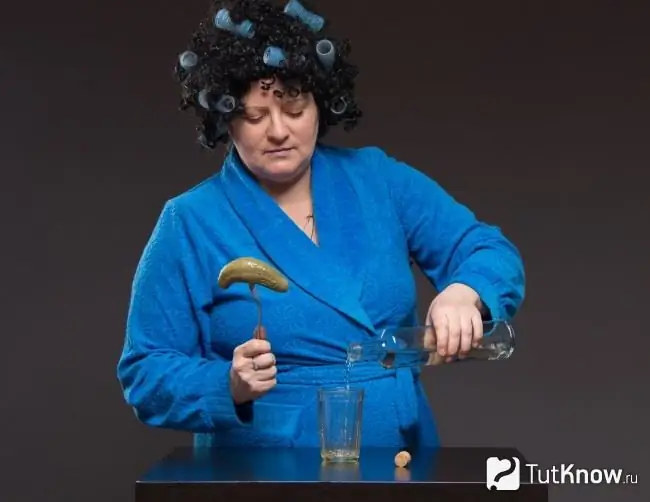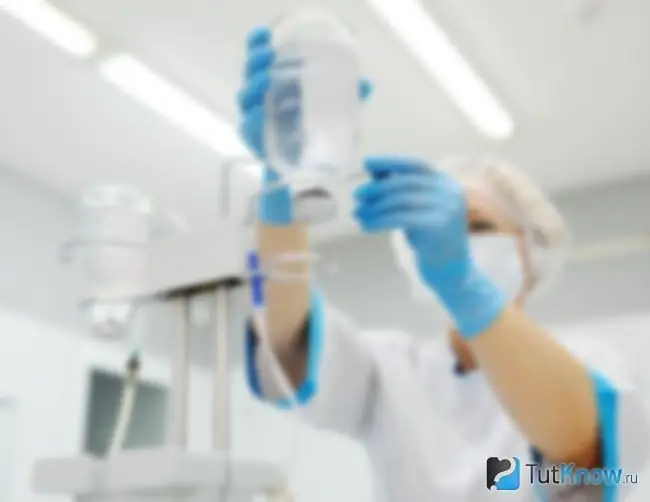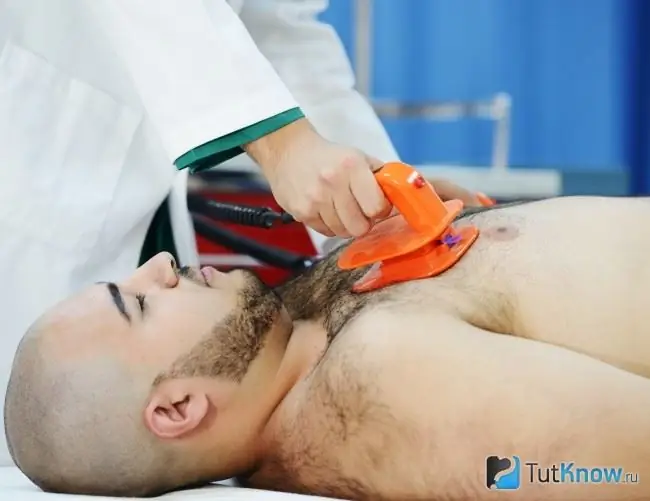The concept of alcoholic hallucinosis, etiological factors and varieties of this condition. The main clinical manifestations, the main approaches to the treatment of the pathological condition and the prognosis. Some aspects of the prevention of alcoholic hallucinosis. Alcoholic hallucinosis is a pathological condition that belongs to a number of metal-alcoholic psychoses and is manifested mainly by a disorder of perception and delusional ideas. At the same time, orientation in oneself and in the external environment is preserved, which distinguishes this pathology from alcoholic delirium. This must be taken into account when making a diagnosis and choosing treatment tactics.
Description of alcoholic hallucinosis

The urgency of the problem of alcoholic hallucinosis is due to the increase in the incidence of the disease. Today it is believed that almost 10% of patients with chronic alcoholism are prone to developing alcoholic hallucinosis. Usually these are people over 40-45 years old who abuse alcoholic beverages for quite a long period - 15-20 years. The main problem with alcoholic hallucinosis is the consequences that this condition can cause. The “voices” that a person hears are perceived as judging, evaluating, criticizing. Auditory hallucinations are very difficult to distinguish from real ones; moreover, they may be familiar. Most often these are the voices of loved ones, children, spouse (s) or parents. They condemn the patient and cause anxiety, fear. Alcoholic hallucinosis can even cause suicidal thoughts or any actions that are contrary to the law and principles of a person. Thus, the symptoms of this condition can provoke suicidal and antisocial behavior. Thus, alcoholic hallucinosis is a condition that is a direct indicator of hospitalization and emergency treatment.
The causes of alcoholic hallucinosis

The main etiological factor in the development of alcoholic hallucinosis is the long-term systematic use of alcoholic beverages with the development of addiction. Naturally, the time of manifestation and severity depends on the individual characteristics of the person and differs in each case.
The mechanism of development of alcoholic hallucinosis is carried out due to the formation of encephalopathy. Pathological organic changes in brain tissues occur throughout the entire period of chronic alcoholism. Periods of alcohol withdrawal are accompanied by an increase in these structural changes and the progression of encephalopathy.
Conditions for the development of alcoholic hallucinosis:
- Systematic use of alcoholic beverages … The experience of chronic alcoholism for more than 15 years is taken into account. During this time, the likelihood of developing organic psychotic manifestations against the background of encephalopathy increases.
- Addiction … The chances of the formation of hallucinatory and delusional experiences increase in the presence of the second or third stage of alcohol dependence.
- Withdrawal symptoms … The systematic development of withdrawal syndrome negatively affects the structure of brain tissue and can accelerate the development of various perception disorders.
- Tolerance … With the development of alcoholic hallucinosis, tolerance to a large amount of alcohol consumed is significantly reduced. That is, in order to achieve a certain effect that a person with an addiction is trying to get, each time it is necessary to increase the dose of alcohol.
The main signs of alcoholic hallucinosis in humans

The manifestation of alcoholic hallucinosis may differ depending on the individual characteristics of the manifestation. That is, one person may have all the symptoms, while another will have a more blurred clinical picture. This must always be taken into account when determining a pathological condition.
The main symptoms of alcoholic hallucinosis:
- Harbingers … The preceding aura does not develop in all cases and is not specific. It can be observed in other pathological conditions, therefore, its presence does not always unambiguously indicate the subsequent development of alcoholic hallucinosis. It manifests itself in the form of increased anxiety, internal tension. A person feels an inexplicable fear that is not related to the events taking place. Distrustful behavior. He behaves as if he is afraid of the impending danger.
- Auditory hallucinations … This is the main symptom of this disorder. At the same time, a person hears the “voices” as if they are real. It can often indicate that they are behind a wall, a floor above or below, come from inanimate objects. The content of typical auditory hallucinations in this disease is threatening, judgmental. "Voices" constantly criticize a person's actions or behavior, forcing him to act in a way that he would never have done, provoking aggressive behavior, etc.
- Visual hallucinations … Significantly less often, but still observed in alcoholic hallucinosis, perception disorders in the form of visual images. They are not bright and not as believable as in delirium, but they can complement and confirm the systematic paranoid delusions, providing reasons to believe in what is happening for the sick person.
- Crazy ideas … They arise against the background of constant anxiety, commenting, criticizing hallucinatory experiences, as well as increased anxiety. A person constantly feels danger from the outside and begins to build a network of delusional ideas in order to explain his feelings. Most often, he is convinced that he is being persecuted, they want to kill, maim or do other harm. In this state, people can hide, leave and commit other ill-considered illogical acts that negatively affect their lives.
- Anxiety … Even after the unfolding of the clinical picture of alcoholic hallucinosis, there is an all-encompassing sense of danger, which the person cannot explain in any way. It is perceived quite realistically, and it cannot be interpreted logically. Fear is also quite realistic and is perceived in the same way as any other threat to life from the outside.
- Criticism … It is very difficult to convince a person with alcoholic hallucinosis that his sensations are pathological. He is unable to distinguish them from reality and does not even try. Any persuasion of a doctor or close people are not ways to cause a person even a little doubt that he is wrong and there is nothing to be afraid of. This is, in fact, the problem of providing emergency care for people with alcoholic hallucinosis.
Features of the treatment of alcoholic hallucinosis
Therapy of alcoholic hallucinosis is carried out in a narcological hospital with the possibility of providing emergency assistance in case of complications of this condition. Usually, his treatment takes quite a long time. At the same time, the very exit from alcoholic hallucinosis can be quite fast, but the recovery period plays an important role in preventing the occurrence of such conditions in the future.
Detoxification treatment

An important stage in the treatment of alcoholic hallucinosis is the period of cleansing the body of toxic products, as well as their metabolites. Even partial elimination of alcohol and its derivatives from the body has a powerful therapeutic effect. With the help of special solutions for detoxification, metabolism is normalized, which significantly improves a person's well-being, removing toxins from the body. Most often, the following solutions are used for this: Reopolyglucin, Reosorbilact, Gemodez. It is also possible to use conventional saline infusions with vitamins and nutrients. In addition to these solutions, glucose, Riboxin, ascorbic acid and necessarily B vitamins are also administered. To prevent the negative effect of alcohol metabolites on the brain and maintain its basic functions, it is recommended to use nootropic drugs. So, together with saline solutions, Piracetam, Mexidol and other similar drugs are often used.
Also, other medicines can be added to droppers with detoxifying substances. In general, the parenteral route of drug administration is preferred. Whenever possible, try not to prescribe medication in tablets, so as not to irritate the gastric mucosa, which itself is damaged.
Antipsychotic treatment

Auditory, visual, or other hallucinatory experiences are indicative of developing acute psychosis and require immediate antipsychotic medication. In addition, delusional ideas that often arise with alcoholic hallucinosis are an indication for such a step. Timeliness is essential in treating this disorder. The sooner antipsychotic therapy is started from the onset of hallucinosis, the more favorable the prognosis for recovery. If such symptoms have been observed for a very long time (for weeks, for example), then one should not expect improvement in a couple of days, even if the correct treatment regimen is prescribed. The choice of a specific method of treatment for psychotic experiences is carried out by the attending physician, depending on the severity of the process, its neglect and other individual characteristics of the person:
- Antipsychotics … These drugs are often prescribed for people with a variety of psychotic symptoms. This group includes a lot of drugs with different parameters of effectiveness, duration of action and selectivity. This allows you to choose exactly the medicine that is needed in a particular case. Most often, doctors tend to opt for Haloperidol, Olanzapine, Risperidone and other drugs with a similar effect. The dosage of antipsychotics in the treatment of alcoholic hallucinosis corresponds to that used in various acute psychoses. Prescribing neuroleptic drugs has many side effects, which must be taken into account when choosing this method of therapy. A qualified medical practitioner will take this into account and take steps to reduce the likelihood of such unwanted effects.
- Electroshock … Despite the current tendency to accept this method as outdated, it still yields positive results in the most hopeless cases. Electroconvulsive therapy is considered one of the most effective treatments for psychotic recovery. Moreover, it is effective in severe cases when antipsychotic drugs fail. Naturally, dosed exposure to electric current can cause some negative consequences, but the positive qualities far exceed the potential risk. It is necessary to take into account the presence of a number of contraindications to electroconvulsive therapy. At the same time, it is believed that electroshock is a fairly effective method of dealing with psychosis of any severity, including alcoholic hallucinosis.
- Insulinocomatous therapy … The antipsychotic effect of this treatment is achieved by depleting the body's glucose stores. In such a state, which is brought to a coma, the reserve forces of the body are mobilized and the central nervous system "reboots". To date, it is practically not used, since its role is fully performed by antipsychotic drugs. It is considered a fallback method that can be used if all others are ineffective. The essence of this therapy: with the help of insulin, a person is injected into a hypoglycemic coma (with a low blood sugar content), and then, with the help of the introduction of glucose solutions, it is excreted. Such a shake-up for the body involves getting rid of any "failures" in the work of the human psyche.
Psychotherapeutic treatment

This component of therapy for alcoholic hallucinosis is applied after it. It is part of the recovery period, which includes all actions that are aimed at rehabilitating a person and returning to a normal ordinary life. Most of the psychotherapeutic spectrum methods are aimed at preventing the development of such a condition and gradually refusing to take alcoholic beverages. Work with a psychologist is carried out using sessions of cognitive-behavioral therapy or another method. The necessary attitudes towards a healthy lifestyle are determined, and the values are revised. An experienced psychologist will help you overcome addiction and gradually return to your old life. Naturally, the effectiveness of this stage of therapy entirely depends on the person himself and his desire to overcome the disease.
Prevention of alcoholic hallucinosis

An important point in the treatment of alcoholic hallucinosis is the prevention of recurrent cases of this condition. As mentioned above, psychotherapeutic assistance is aimed at preventing such exacerbations. In addition to her, there are also many other methods that narcologists are engaged in. These are the so-called coding, stitching of an intramuscular implant, and others.
It is important to prevent the transition from an acute state to a chronic alcoholic hallucinosis. Such cases are much more difficult to treat, and the prognosis is less favorable. Therefore, in the presence of the first symptoms of alcoholic hallucinosis, you should definitely seek qualified help.
A prerequisite for effective treatment of this disorder is alcohol refusal. Even a small dose can aggravate the condition and delay recovery for an extended period of time. How to treat alcoholic hallucinosis - watch the video:

The development of alcoholic hallucinosis is that alarm bell in the course of chronic alcoholism, which may indicate a deterioration in a person's condition. When the first symptoms of this disease form, it is important not to self-medicate and immediately consult a doctor. Only a specialist can prescribe the correct detoxification and antipsychotic therapy.






